
The evocation of light in the cinema leads the Character of the Man of Light to ponder over it, over its essence and its multiple manifestations in a revisitation of geographical places and memories.

Bernardo
Vargas is an undercover agent whose mission is to capture a group of robbers. The robbery of a jewelry store will be the ideal moment to catch them in the act. After a conversation with Ricardo, one of the group's members, Vargas questions his view of the enemy, making the mission much more difficult.

Director
A documentary by Manuel Mozos about the spaces that capture the narratives of the marginalized. Whether madmen or criminals, they are all those who existed delimited and separated: in forts, in prisons, in hospitals or asylums. Their time passed, but the spaces remain.

Himself
A filmmaker and an actress travel towards a remote location, in search of a particular house, and of inspiration for their next movie. The region is Douro, and the house belonged to Manoel de Oliveira, where he took refuge to create many of his works.

Director
An addition to As Armas e o Povo (1975), filmed at the Lisbon Cinemateca in 2019.

Bruno Aleixo was invited to write a biopic about his own life. Lacking ideas, he decided to ask his closest friends for inspiration. Reunited in a cafe, each of his friends suggests a different idea, more or less biographical.

Don Ramiro
The start of Luís Rovisco’s old age isn’t exactly cheerful. Already in his sixties, he’s still roaming the country by himself, carrying out his tasks — increasingly less real — as sales director for the company SegurVale. Sadness, resignation? Not with the songs Luís makes up behind the wheel, and that take over this film from start to finish.

Writer
Using the author's personal estate, current images of places where she lived or were dear to her, and archival images of television and film; using parts of her prose and poetry always with first-person testimonies; from Porto to Lisbon, from Granja to Lagos, from the Atlantic Sea to the Mediterranean, from Greece to 25 April: the passions and disappointments of a life and work dedicated to the search for the real, freedom and justice.

Director
Using the author's personal estate, current images of places where she lived or were dear to her, and archival images of television and film; using parts of her prose and poetry always with first-person testimonies; from Porto to Lisbon, from Granja to Lagos, from the Atlantic Sea to the Mediterranean, from Greece to 25 April: the passions and disappointments of a life and work dedicated to the search for the real, freedom and justice.

In the second half of the 1980s, an Portuguese independent music publisher was created, Ama Romanta. It was the alternative to the hidden censorship of the big label industry and its founder was João Peste (the charismatic vocalist of Pop Dell'Arte).

Import / export operator
X, a film location scout, spend his time travelling from place to place looking for filming locations, at the same time that he's looking for funding for the film he wrote himself. In the middle of nowhere, as in the nowhere of his life, he stumbles on Y, the woman for whom he has been waiting all his life.
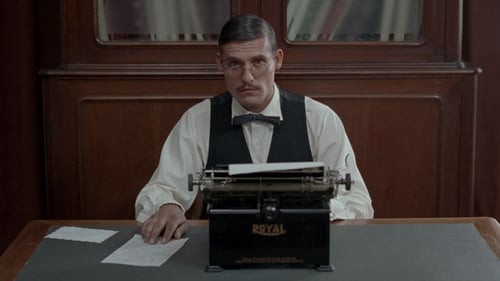
Mr. Moitinho de Almeida
Lisbon, Portugal, 1927. The writer and journalist Fernando Pessoa accepts from his boss the commission to create an advertising slogan for the drink Coca-Louca; but conservative government authorities consider the new drink as revolutionary as it is diabolical.
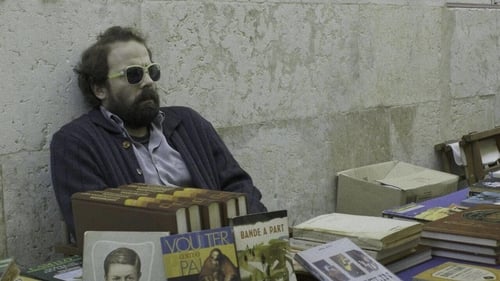
Director
Ramiro is a bookstore owner in Lisbon and a poet in perpetual creative block. He lives, somewhat frustrated, somewhat conformed, between his shop and the tavern, accompanied by his dog, his faithful drinking companions and his neighbors: a pregnant teenager and her grandmother recovering from a stroke. He would gladly continue living this quiet and somewhat anachronistic routine if events worthy of a soap opera did not invade his bubble.

Thanks
Rita is fifteen and spends the summer between warm afternoons of teenage love and party nights with her friend Sara. From Portugal to the South Pacific, the pleasures of this routine will take a turn when the young girl visits the art show of a new neighbor in the local community.
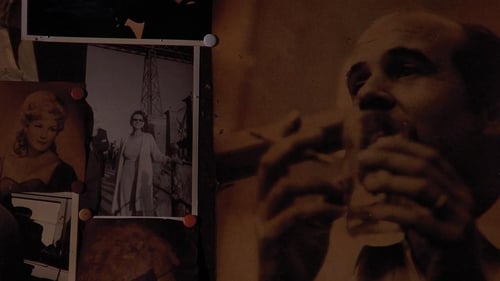
Self
Director Manuel Mozos draws an intimate portrait of João Bénard da Costa, programmer, critic, actor and, for 18 years, director of the Portuguese Film Museum, who passed away in 2009.

Director
Director Manuel Mozos draws an intimate portrait of João Bénard da Costa, programmer, critic, actor and, for 18 years, director of the Portuguese Film Museum, who passed away in 2009.
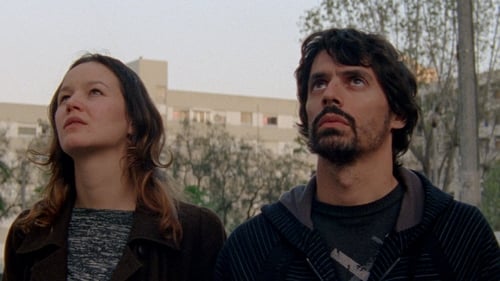
Detetor de Mentiras
In which Scheherazade tells of how desolation invaded men : “It hath reached me, O auspicious King, that a Judge will cry instead of giving out her sentence. A runaway murderer will wander through the land for over forty days and will teletransport himself to escape the Guard while dreaming of prostitutes and partridges. A wounded cow will reminisce about a thousand-year-old olive tree while saying what she must say, which will sound none less than sad ! The residents of a tower block in the suburbs will save parrots and piss inside lifts while surrounded by dead people and ghosts; including in fact a dog that…”. And seeing the morning break, Scheherazade fell silent.

Narrator (voice)
On 18 September 1929, José Régio sent a letter to Alberto Serpa expressing his desire to create a production company and start making films. For almost 90 years, nothing more was known: no reply was ever found and Régio never mentioned the subject again. The discovery of some old reels in a collector’s hoard seems to provide the ending to the story.

Director
On 18 September 1929, José Régio sent a letter to Alberto Serpa expressing his desire to create a production company and start making films. For almost 90 years, nothing more was known: no reply was ever found and Régio never mentioned the subject again. The discovery of some old reels in a collector’s hoard seems to provide the ending to the story.
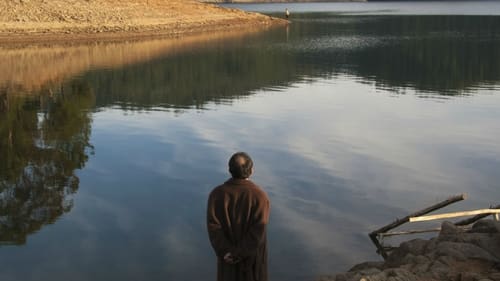
Director
Certainly an outstanding case of beauty and mystery, this short film by Mozos creates a strange alloy of literature and cinema, and not in the way one discipline is a vampire for the other, but rather as if they were the different faces of the same coin, drawn to coexist and repel each other. As if every film belonged to a lonely species, Ashes and Embers shows a unique arrogance as it trembles, somewhat defenseless, with no certainty that the folds of fiction constitute any kind of survival guarantee for such strange objects. Memory and ghosts are two words that are easily said, but in this singular and very refined film they seem destined to become the ultimate goal of cinema, and its most endurable desire.

Tiago is a final-year secondary school student who has failed to graduate twice. Despite praying to the divine, he will fail once again. Between lying to his benevolent mother and giving in to the temptation of a school trip with his girlfriend, Tiago is faced with making decisions. Tiago may not be a lost case.

Himself
Manuel Mozos, the Portuguese director, talks about his films, cinema and Sam Peckinpah.
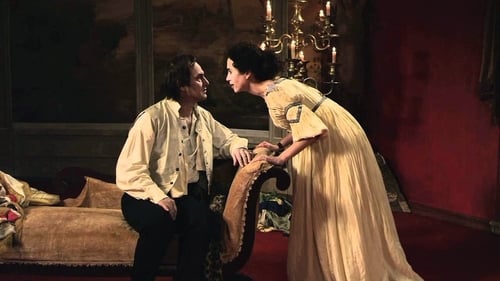
Roberto is one of those men to whom simulation has become the greatest art. He is an unmoved, inscrutable, mysterious man. But the truth is that Robert feels an intimate, deep tedium. The boredom of those who have already exhausted all the pleasures of life. The only thing still surprising him is the fact that nothing surprises him anymore. One evening he has an overwhelming encounter with a woman. For his own bewilderment, he discovers the sublime horrors in which the woman has sank.

Himself
A documentary about the world of portuguese cinema, with interviews with some critics and directors.

Invité du Mariage
The short life of the Uruguayan poet Delmira Agustini is colourfully portrayed, not as a conventional biopic, but as a visual poem which evokes the turbulent life and complex personality of the literary heroine as she develops her genius for writing.

The story of a young cinephile, who, coming from Braga, arrives in Lisbon, where he found a peculiar and fleeting job. Between the dark movie theatres, a girl and friends, the portrait of a certain era and of a young man like many, kind of lost, kind of uninterested.

Editor
Jorge, a very shy young man, works as bellboy in a Lisbon hotel and lives in a guesthouse where he is constantly harassed by the owner’s daughter. As he tries to resist her charms, the boy dreams of one thing only: to incarnate the singer Tony de Matos. This obsession leads him to sign up for an unique karaoke contest, where he will finally be able to give life to his longtime hero. And it’s amid a group of strange characters that Jorge will understand that, after all, he is not alone.
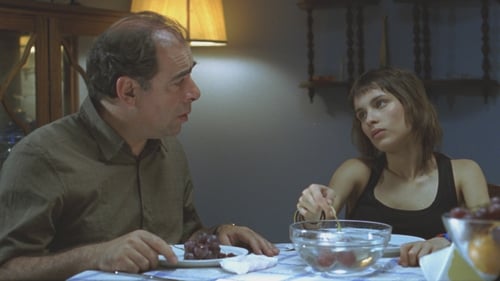
Editor
Diana is a young woman about to enter adulthood. She lives with her father, Gabriel, a game machine dealer, and Magdalene, the stepmother, alongside those working in a hair salon in a shopping center. One day, Diana discovers that Magdalene not only keeps a secret relationship with Michael, the security center and instructor in the gym of the neighborhood, as resumed his old habit of playing. Not to allow the stepmother to his father do the same as her mother had done to her, Diana decides to intervene, approaching the Magdalene lover.

Writer
Diana is a young woman about to enter adulthood. She lives with her father, Gabriel, a game machine dealer, and Magdalene, the stepmother, alongside those working in a hair salon in a shopping center. One day, Diana discovers that Magdalene not only keeps a secret relationship with Michael, the security center and instructor in the gym of the neighborhood, as resumed his old habit of playing. Not to allow the stepmother to his father do the same as her mother had done to her, Diana decides to intervene, approaching the Magdalene lover.

Director
Diana is a young woman about to enter adulthood. She lives with her father, Gabriel, a game machine dealer, and Magdalene, the stepmother, alongside those working in a hair salon in a shopping center. One day, Diana discovers that Magdalene not only keeps a secret relationship with Michael, the security center and instructor in the gym of the neighborhood, as resumed his old habit of playing. Not to allow the stepmother to his father do the same as her mother had done to her, Diana decides to intervene, approaching the Magdalene lover.
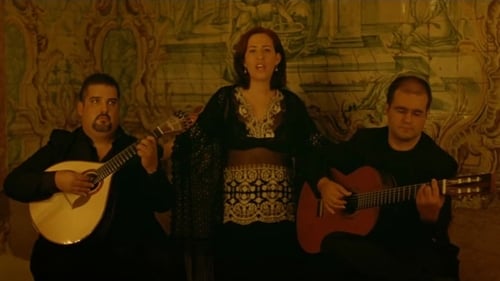
Receptionista
A young French actress in Lisbon to shoot a movie is intrigued by a nun she sees kneeling in the chapel where she is filming.

Writer
Fragments of spaces, buildings and structures, memories and remains of past eras, places of work or leisure now inhabited by our memories alone, or really forgotten. Dead things or living proof of time, natural elements, and human predators themselves.

Director
Fragments of spaces, buildings and structures, memories and remains of past eras, places of work or leisure now inhabited by our memories alone, or really forgotten. Dead things or living proof of time, natural elements, and human predators themselves.

Director
A portrait of the unique personality of Aldina Duarte, a girlish lady, who sings the “fado” out of conviction and love. The film profiles her, unveiling her personality, travelling with her on a journey across her city, Lisbon, visiting the places that she most loves and knows so well, exposing herself as a free and open, generous and lively, innocent but wise woman, with the straightforwardness and a certain spice full of prudishness that are so identifying to Aldina Duarte.

Customer at 'Imperatriz'
In oPorto there is a club, Imperatriz, where everything is permitted. A moment in which all intersect in the dark night.
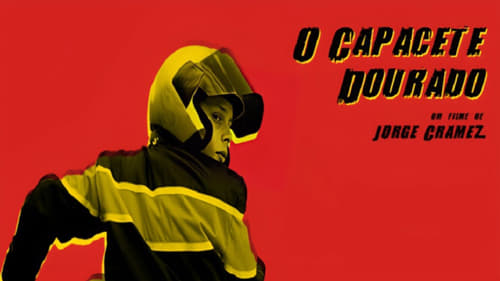
The darkness of night, a barely lit place, motorbikes flirting with danger: a group of teenagers at a crossroads playing chicken with unaware passing cars. Jota (Eduardo Frazão) stands out from this group, unclassifiable; his destiny has no straight lines save those on the asphalt.
Jota lives in permanent conflict with everything and everybody in his small town. No room for stillness. And then comes Margarida (Ana Moreira). Jota has no inside, Margarida has no outside. In spite of, or because of, that, they meet. What can they do? They can just ride, they can get away with it even if its all messed up. Love is to be lived.

Director
Synthesis of the first 110 years of the history of Portuguese cinema, made almost exclusively with archive material from the series of eight episodes History of Portuguese Cinema, produced by Pedro Efe in 1998, and combining excerpts from films with testimonies from some of the most prominent actors of the same story. It is attempted to relate it chronologically, and in spite of certain gaps, in an accessible, concise and didactic way.

Harry
Francisco, behave! I Know it's your birthday, you are thirty now, it's carnival, you've dressed as a cowboy for the school party and you are surrounded by kids you hate. But that's no reason to be so annoying... Francisco, repeat after me: "Up to your 30s you have the face God has given you. After that, you get the face you deserve".

Writer
Francisco, behave! I Know it's your birthday, you are thirty now, it's carnival, you've dressed as a cowboy for the school party and you are surrounded by kids you hate. But that's no reason to be so annoying... Francisco, repeat after me: "Up to your 30s you have the face God has given you. After that, you get the face you deserve".

Editor
Rui, A teenage boy works in his father shop and has an old brother that is a policeman. His father is about to close the shop, because of money issues, and Rui needs to get money for him and also to help his father. By the hand of a friend he enters in the criminal world to make money.

(voice)
The operational commander of the "Captains Movement", describes and recreates a quarter of century later the crucial 24 hours of April 25, 1974, that would topple the Portuguese government and start a democratic regime in Portugal - since another military coup, May 28, 1926, installed a one-party dictatorship there. The scenes in the claustrophobic operation room are recreated, with him alone and a few voices.

A family gathers to celebrate Christmas.

Editor
A family gathers to celebrate Christmas.

Young Man at the Party
Set in the Lisbon during the festivities of Saint Anthony, the patron saint of lovers and the old town. The story is about Cato, a nationalist politician who is charismatic and unscrupulous. He obsessively pursues Silvia, a mystical and mysterious young transvestite whom he meets at the festival. When Silvia runs into Vicente, a policeman who arrests transvestites and threatens them, Silvia must look towards blackmail to save herself. Compromising photos of Cato start to emerge among opposition parties and he must do all in his power to save his political career.

Writer
The relationship between António and Ruth ends unexpectedly when Ruth decides to live with Pedro, António's best friend. António doesn't fight back and lets himself drown. From the woods come Violeta and Gaspar, two strange beings, a mixture of fairies, demons and guardian angels, who help António overcome his depression. With the thunders the two characters return to their domains. And life goes on.

Director
The relationship between António and Ruth ends unexpectedly when Ruth decides to live with Pedro, António's best friend. António doesn't fight back and lets himself drown. From the woods come Violeta and Gaspar, two strange beings, a mixture of fairies, demons and guardian angels, who help António overcome his depression. With the thunders the two characters return to their domains. And life goes on.

Editor
Early morning and everybody leaves home to work. Jeremias, the gardener, hears the telephone ringing in the house. The front neighbour has a message. Conceição, the maid, called: she won’t be able to come today, Jeremias has to make lunch for Boris. Water falls from the window. the washing machine is not working properly. Boris arrives from school. Jeremias doesn’t have the key

Editor
A short-film in 35 mm, black > white stages a day in which the main character discovers that she stopped seeing in color. Written as photographer’s film, it was shot on several locations in Lisbon. It is the only purely fiction work by the author.

Writer

Director

Editor

Director
A documentary about the life and work of José Cardoso Pires. The information was gathered through a series of interviews made by the journalist Clara Ferreira Alves during autumn and winter of 1997 and also by people who were close to him.

Writer
Through a conversation with João Bénard da Costa and his ideas about the Portuguese cinema, an interaction between the construction of the documentary and the sights and sounds clips from some movies is established. Despite the difficulties, the films continue to exist and to resist. Is it worth it? What would happen if they disappeared? Each viewer must find their answer. This film aims to be an approach to Portuguese cinema in its hundred years of existence, opening, hopefully, ways for their dissemination and making light for its knowledge.

Director
Through a conversation with João Bénard da Costa and his ideas about the Portuguese cinema, an interaction between the construction of the documentary and the sights and sounds clips from some movies is established. Despite the difficulties, the films continue to exist and to resist. Is it worth it? What would happen if they disappeared? Each viewer must find their answer. This film aims to be an approach to Portuguese cinema in its hundred years of existence, opening, hopefully, ways for their dissemination and making light for its knowledge.

Director
The city during the beginning of cinema. The typical city at the time of the dictatorship. The New Lisbon of the New Cinema. Lisbon after the Revolution. The white city of foreigners. A geographical and moviegoer screenplay of Lisbon through the images of films and testimonies of several filmmakers who filmed in Lisbon.

Editor
Lisbon, early 1940s. The neutral port town is an open door to freedom, for those who are escaping the Nazi occupied France and eastern European countries, and a war field for spies of every description. Lisbon became a cosmopolitan town, where the Duke of Windsor, Primo de Rivera, Pola Negri, Leslie Howard, Walter Schellenberg and Juan Garcia are often together in the luxury hotels and night-clubs. Espionage and crime go hand in hand, despite of, or encouraged by, the Portuguese secret police.

Stationmaster
Catalyst in the story of crossed paths is a 1957 Ford Fairlane being driven through Portugal’s Alentejo region to a new owner. Film’s overly protracted opening has car’s drivers (Filipe Cochofel, Antonio Pedro Figueiredo) joy riding the night away until the roadster breaks down. Momentum picks up at sunrise with their attempts to fix the car. A retired mechanic-turned-beekeeper with a heart condition (Canto e Castro) does the trick and convinces Figueiredo to take him cross-country on a motorbike to look up an old friend. Cochofel and the mechanic’s alarmed niece (Maysa Marta) follow in pursuit. The old man dies peacefully on the road, but Figueiredo, having wholeheartedly grasped his deliverance mission, keeps going.

Writer
One night Jorge will meet with a Japanese industrialist, who will allow him to abandon his teaching position and resume his chemical work. However, when he gets home he finds a person there.

Highschool Teacher Costa
One night Jorge will meet with a Japanese industrialist, who will allow him to abandon his teaching position and resume his chemical work. However, when he gets home he finds a person there.
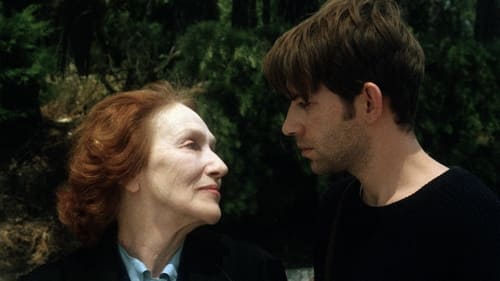
Editor
Xavier returns to Lisbon after a military stint, determined to lead a meaningful life, only to find his world closing in on him.

Writer
Xavier returns to Lisbon after a military stint, determined to lead a meaningful life, only to find his world closing in on him.

Director
Xavier returns to Lisbon after a military stint, determined to lead a meaningful life, only to find his world closing in on him.

Man Smoking in Dressing Room (uncredited)
Maria is a sweet child. She hasn’t father and doesn’t like her mother. She has a boyfriend, A bandit who would like to change his class.

Writer
Maria is a sweet child. She hasn’t father and doesn’t like her mother. She has a boyfriend, A bandit who would like to change his class.

Writer
Nogueira, a man in his fifties, is a relic of times long past. While the youngsters at the school where he works as a caretaker still think the world is their oyster, Nogueira knows that, for him, most doors have long closed.

Director
Nogueira, a man in his fifties, is a relic of times long past. While the youngsters at the school where he works as a caretaker still think the world is their oyster, Nogueira knows that, for him, most doors have long closed.
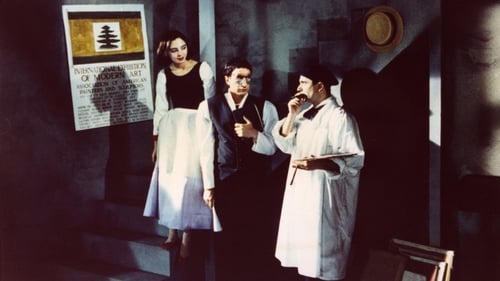
Editor
A world of strong colours between documentary and fiction, centered on the life and work of modernist painter Amadeo de Souza Cardoso.

Assistant Editor
This visually striking drama is taken from the classic Japanese novel Tales Of Genji by Marasaki Shikibu. Set in modern Portugal, Joao (Luis Miguel Cintra) is a left-wing political leader and ladies man with a bright future. His ex-wife Isabel (Manuela de Freitas) both loves and hates him as Joao plays on her wavering emotional state. He is sent to Italy to retrieve wayward family member Antonia (Caroline Chaniolleau), the beautiful young woman with a terrorist boyfriend. Joao is forced to recognize his feelings as the political and amorous climate changes around him.

Le violon
In a specialized, hermetic drama about love won and lost, not necessarily by the same individuals, novice director Christine Laurent has focused on the backstage melodramas of an opera company. The conductor for an upcoming performance of the Marriage of Figaro has his mind and heart on other matters -- an entrancing diva who keeps him enraptured with her presence and voice. In the meantime, he finds fault with his cast members who cannot, of course, measure up to the woman of his dreams. As singers encounter one problem or another, it is clear that something has to be done about the conductor. Director Laurent designed costumes for both theater and opera, giving her some insight into the venue.






















